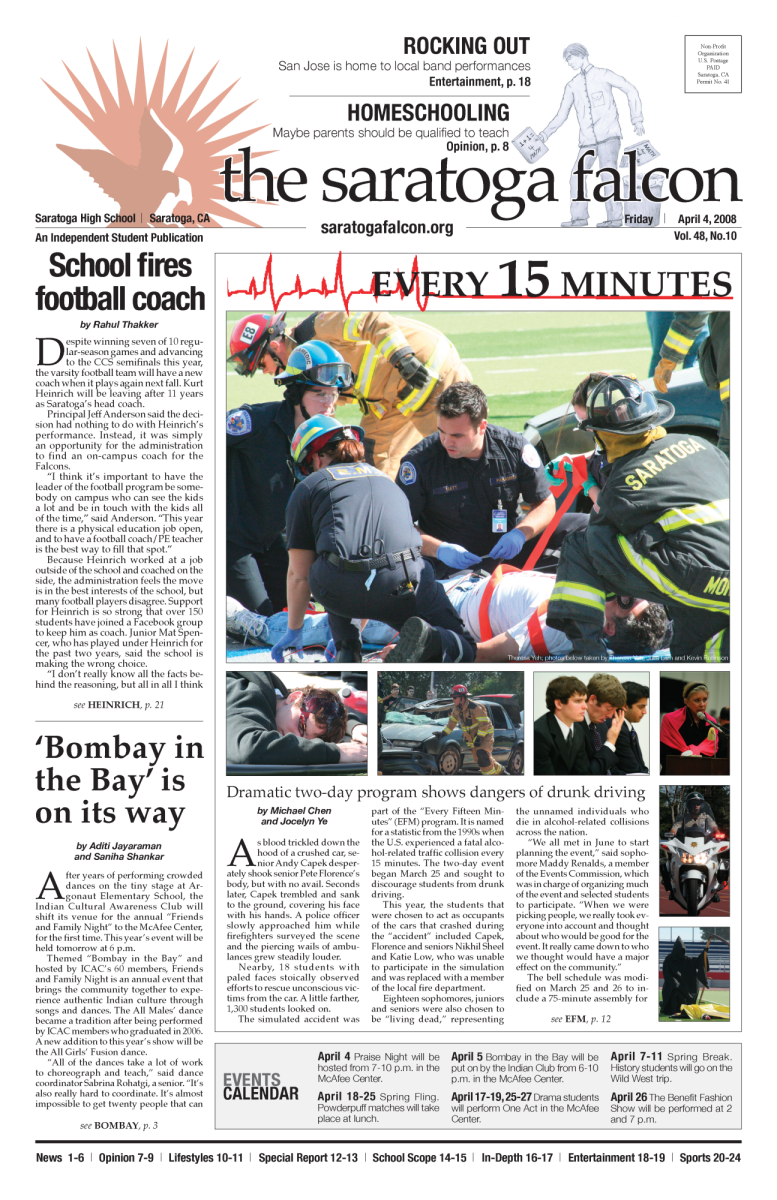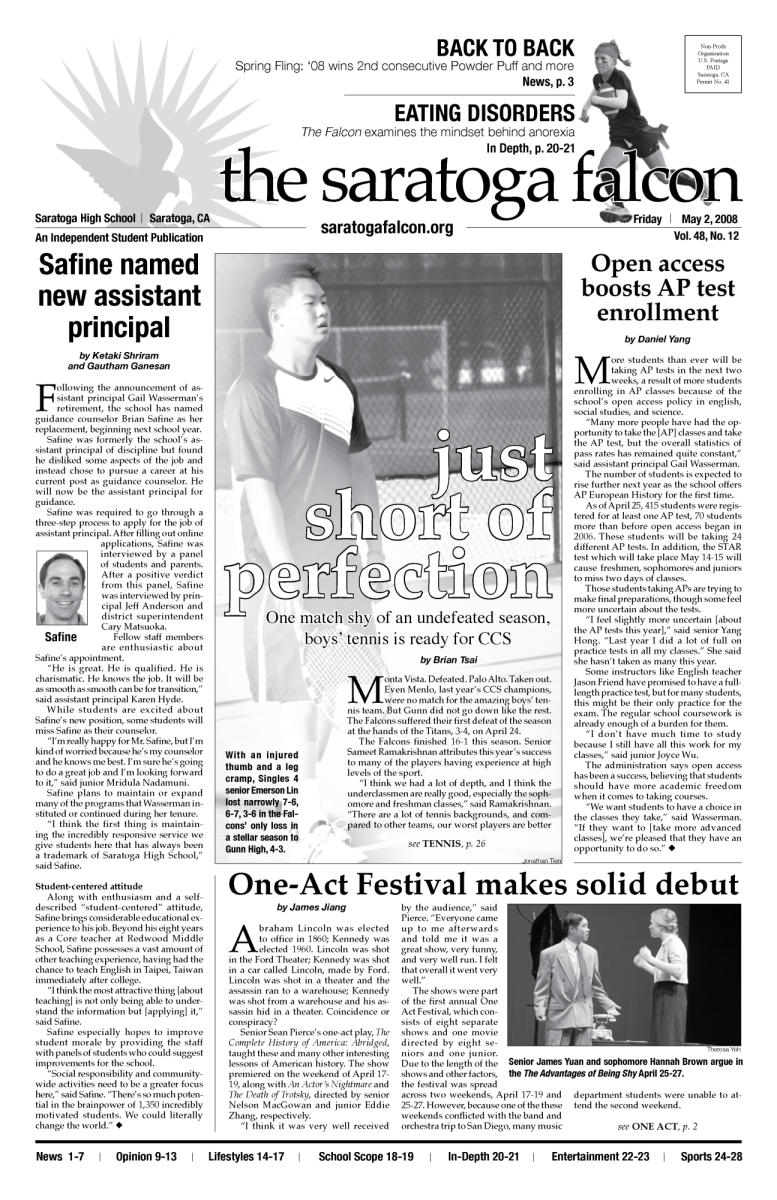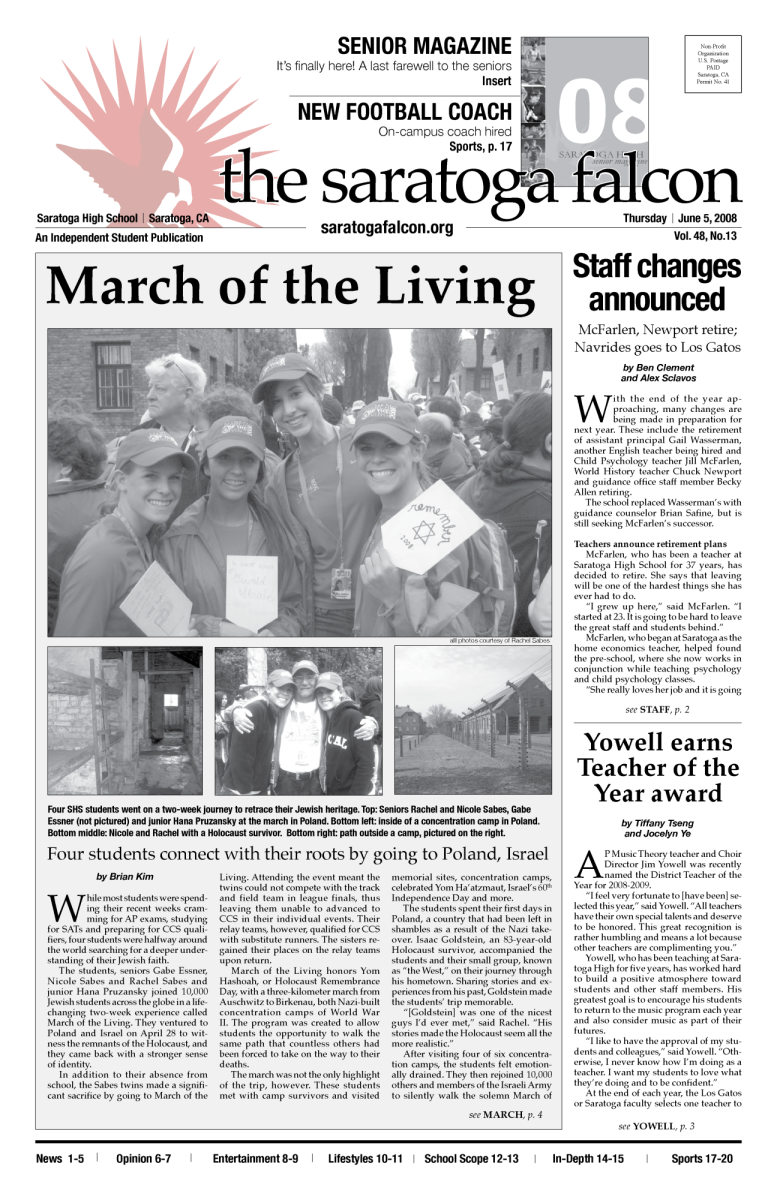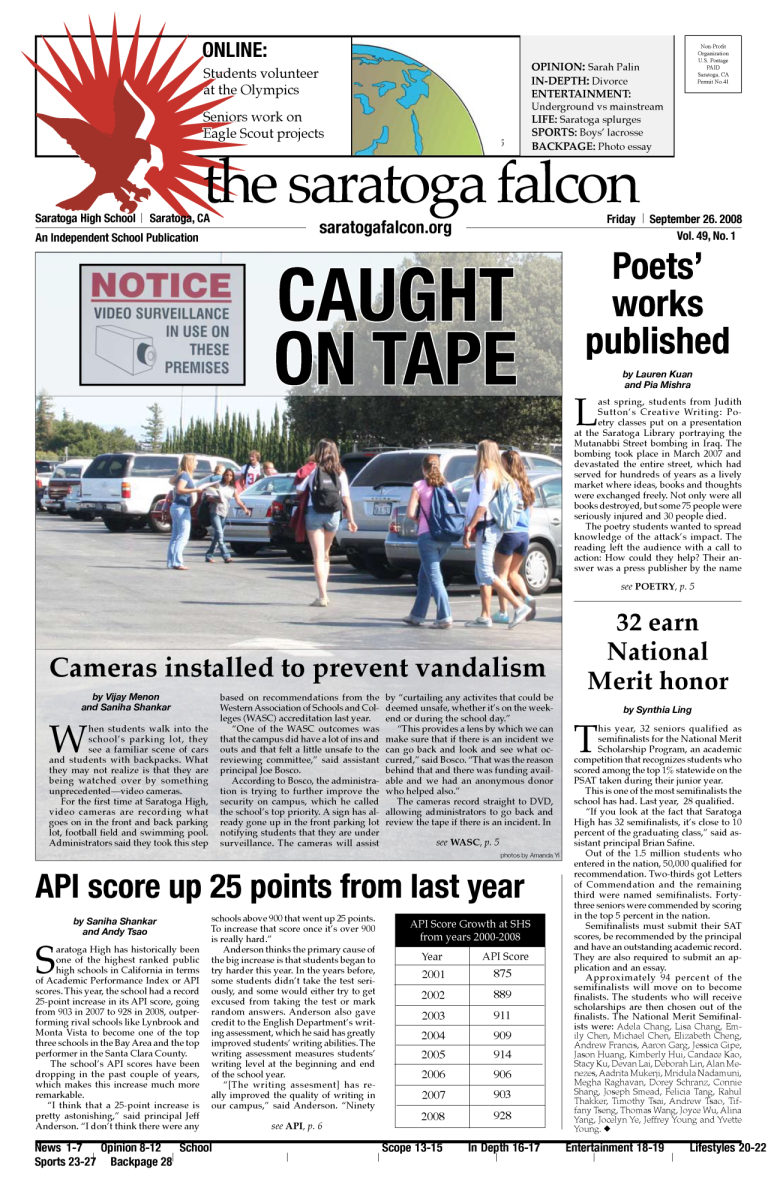Arguably the biggest transition from middle school to high school is the block schedule all freshmen must get attuned to. Instead of 45-minute periods that they knew so well from Redwood Middle School, the school throws new students for a loop with 95-minute classes four out of five days of the week.
Yet the school did not always have a block schedule. Eight years ago, during the 2005-2006 school year, the school decided that a block schedule would help lessen the homework load on students so that they would not have to do seven classes of homework a night. While this change seemed beneficial, some students wish it had never happened.
Junior Kip Ringsrud prefers a simpler schedule.
“Even though we would have seven classes a day, teachers would know that students wouldn’t be able to do that much homework in a night so they would assign less,” Ringsrud said.
He said teachers often feel obliged to give more homework because they have class for nearly double as much time, sometimes resulting in double the amount of homework. Ringsrud believes that if schedules were changed back to seven classes a day, the homework load would actually decrease rather than increase.
“Homework is meant to review the material learned in class and if we learn less material in class, then we would have less homework,” Ringsrud said.
Another point Ringsrud makes is that the elongated block period is far beyond the attention span of the normal student.
“It’s really difficult to focus in class when we have been sitting in class for an hour or an hour and 15 minutes. The final 20 minutes is really a grind,” Ringsrud said.
Sophomore Ken Wu agrees. He believes that the non-block schedule would help students maintain focus in the classroom because there is a five 5-minute passing period every 50 minutes rather than one every hour and a half. Wu believes that these five minutes are crucial in maintaining focus.
“When I can walk around, I can refocus and see the task at hand, but when I’m sitting down for long lengths of time, I can’t maintain my concentration,” Wu said.
According to Wu, this break in focus goes a long way in his studies. He finds that during homework, the concepts taught in the later part of class are always harder to remember.
“It’s really hard to concentrate at the end of class so when I do homework, I can really feel it,” Wu said.
Fortunately for Wu and Ringsrud, the school implements this seven-period day once a week every Monday.
“It’s nice to be able to have at least one day where we have seven classes. While the homework load might be heavier, I really understand the material better,” Ringsrud said.
While there are revisionists in school, there are also firm believers in the block schedule. Senior Eric Tang likes the block schedule because “it allows for procrastination to the maximum.”
“Homework is a lot less in comparison to the seven class schedule because I can have an extra day to do three classes worth of homework. That really helps me stay on track,” Tang said.
Yet Ringsrud believes that with proper time management and diligence, students can manage a normal schedule and the block schedule would be unnecessary. According to Ringsrud, simplicity is easier, and in this case, the seven-period schedule would keep his life nice and simple.
“The block schedule just complicates things and makes high school more stressful,” Ringsrud said.



























